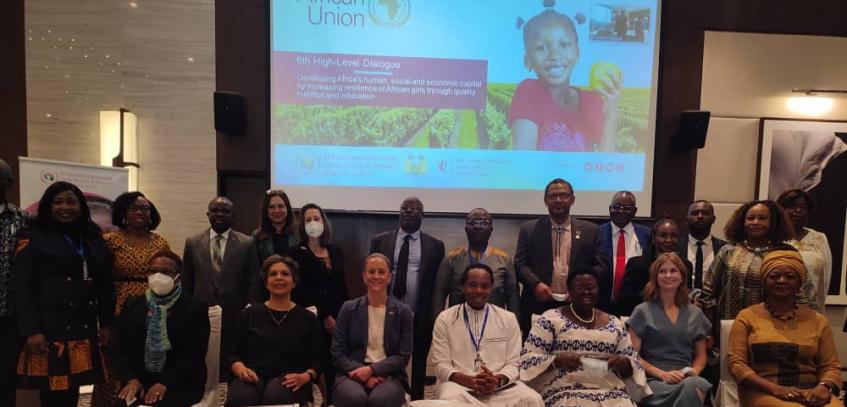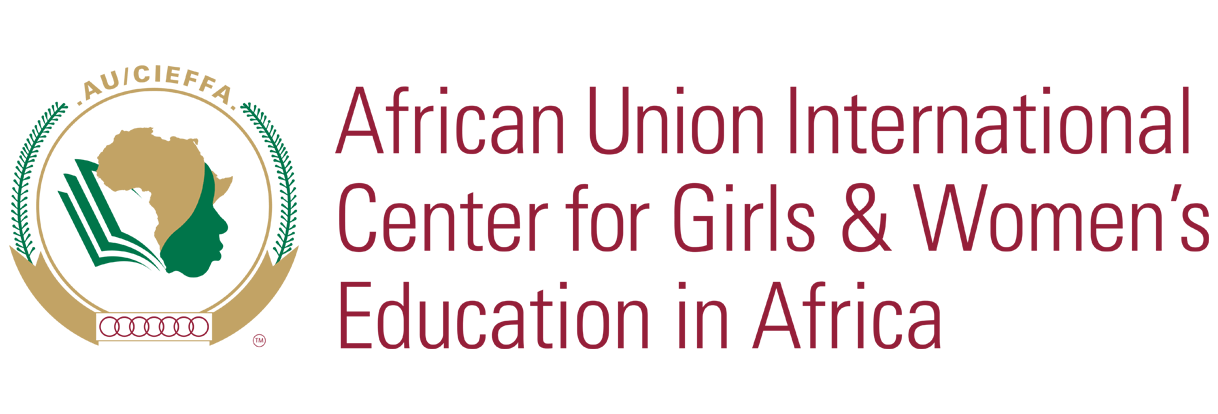The African Union International Center for Girls & Women’s Education in Africa in conjunction with the African Union Department of Education, Science, Technology and Innovation (AUC/ESTI) and the Republic of Sierra Leone hosted the 6th High-Level Dialogue on Gender Equality in Education in Addis Ababa, Ethiopia on the 5th of February 2022.
This annual event took place on the sidelines of the 35th AU Assembly of Heads of State and Government under the theme “Developing Africa's human, social and economic capital by increasing resilience of African girls through quality nutrition and education" and brought together leaders in government, the development sector and the non-governmental sector to discuss and share experiences on national school feeding programs and the added benefits of increasing enrolment and retention rates of girls in school.
Dr Rita Bissoonauth, Head AU/CIEFFA and the Master of Ceremony at the event highlighted that the COVID-19 pandemic and other humanitarian crises have contributed to undermining the progress of African countries in accomplishing their school food policies. She hoped that this meeting would enable all actors to come out with enhanced strategies on how best to increase the resilience of African girls through quality nutrition so as to strengthen their educational skills.
In his opening remarks, H.E. Prof. Mohamed Belhocine, Commissioner of AUC/ESTI underlined that the COVID-19 pandemic had come at a time when the African Union Member States are at a crossroads in providing basic services for human development, including the rights to education and food resources.
His statement was supported by data outlining that before COVID-19, 52 million girls in Sub Sahara Africa were out of school and 123 million women. He added that that an estimated 13 million more girls could be forced into child marriages and early pregnancies due to the impacts of the pandemic.
Mr Hambani Masheleni, Ag Director, AUESTI and Mr Hameed Nuru, Director of WFP to the AU and UNECA respectively, shared evidence on the impact of the AU’s Home-Grown School Feeding Program, a collaboration between the AU and WFP and the impact of COVID-19 on girls’ retention to schools.
Data shows that women and girls are more exposed to hunger and malnutrition than boys; they represent 60 percent of all undernourished people in the world. Furthermore, African girls struggle more than boys to access education; over 9 million girls between the ages of 6 and 11 never go to school at all, compared to 6 million boys.
The WFP Cost of Hunger Study revealed that 18% of children repeat grades due to stunting, drop out earlier, attain fewer grades of schooling and get up to 3.6 fewer years of school. When adolescent girls are out of school, they are more vulnerable to forced marriage, early pregnancy, violence and even human trafficking.
Hon. Dr David Sengeh, Minister of Basic and Secondary Education, Republic of Sierra Leone moderated a round-table dialogue during the event where he and Hon Joyce Kaducu, Minister of State for Primary Education, Uganda and UNAIDS shared experiences of their work aimed at safeguarding girls’ education and reiterated the importance of nutrition and school feeding programs.
A Call to Action was presented by Hon. Dr David Sengeh, Minister of Basic and Secondary Education, Republic of Sierra Leone and called on all AU Member States, development partners and non-state actors to invest in human capital through quality nutrition; Develop & adopt an AU Gender-responsive School Feeding Strategy to retain girls in school in all AU Member States; and advocate for more girls in STEM fields to have more African female scientists, more female innovators resolving Africa’s problems including climate change, energy and water issues.
A recommendation was also made for the Republic of Sierra Leone to champion the African Union Agenda on girls' education with the support of all the AU Member States through the technical support of the AU/CIEFFA.
Other speakers at the high-level event included the State Secretary for International Development, Norway, Ms Bjørg Sandkjær and Ms Tracey Corner, First Secretary, Embassy of Canada in Ethiopia who shared their countries commitment to continue supporting AUC’s efforts to empower girls and women through education. Ms Sandkjær underlined that a healthy, well-nourished population is the foundation for growth and socio-economic development of a country.
For further information please contact:
Ms. Anoziva Marindire, Communications Officer | AU/CIEFFA | African Union Commission
Tel: +226 25 37 61 55 | E-mail: MarindireA@african-union.org | Ouagadougou, Burkina Faso
Ms. Faith Adhiambo, Communications Officer- Agenda 2063 Information and Communication Directorate | African Union Commission
Tel: +251 115 517 700 | E-mail: ochiengj@african-union.org | Addis Ababa, Ethiopia
Information and Communication Directorate, African Union Commission I E-mail: DIC@africa-union.org
Web: www.au.int | Addis Ababa, Ethiopia | Follow Us: Facebook | Twitter | Instagram | YouTube










